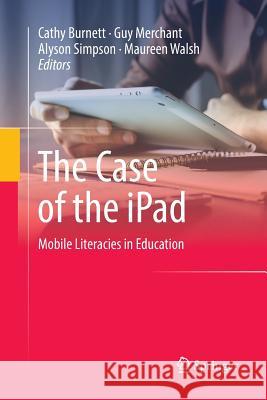The Case of the iPad: Mobile Literacies in Education » książka
topmenu
The Case of the iPad: Mobile Literacies in Education
ISBN-13: 9789811351174 / Angielski / Miękka / 2018 / 271 str.
Kategorie:
Kategorie BISAC:
Wydawca:
Springer
Język:
Angielski
ISBN-13:
9789811351174
Rok wydania:
2018
Wydanie:
Softcover Repri
Ilość stron:
271
Waga:
0.41 kg
Wymiary:
23.39 x 15.6 x 1.52
Oprawa:
Miękka
Wolumenów:
01
Dodatkowe informacje:
Wydanie ilustrowane











